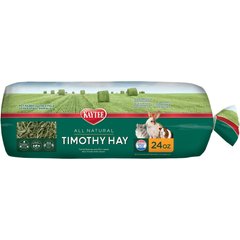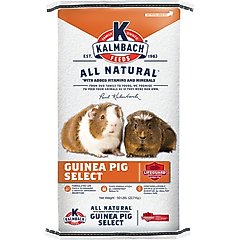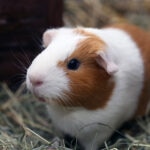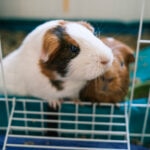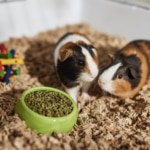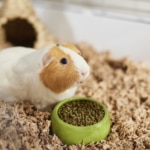Can Guinea Pigs Eat Grapes?
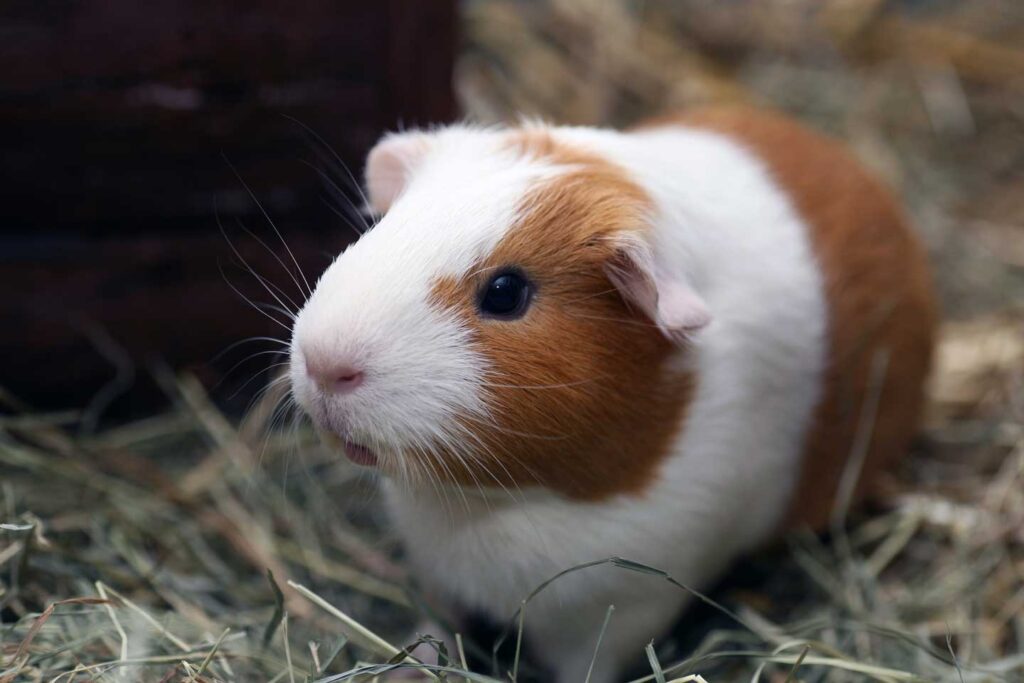
Photo by kickers/E+
You might already know that grapes are toxic to dogs and cats, but what about your pet cavy? Can guinea pigs eat grapes?
Well, it’s complicated. Fruits aren’t ideal for guinea pigs. They’re better off chowing down on scrumptious hay biscuits or pellets. But grapes are technically safe for them to eat.
Are Grapes Healthy for Guinea Pigs?
Grapes aren’t considered healthy for guinea pigs, but they’re not toxic or overtly harmful.
“In general, the gastrointestinal tract of the guinea pig is not designed to digest fruit, which is not a big part of their natural diet,” explains Angela M. Lennox, DVM, DABVP (Exotic Companion Mammal Practice), DipECZM (Small Mammal), a veterinarian at Avian and Exotic Animal Clinic of Indianapolis.
Still, feeding grapes in very small amounts may be OK. “Guinea pigs can tolerate a small amount of fruit, just as we tolerate junk food,” Dr. Lennox says, “but in the ideal world, we wouldn’t feed any.”
Instead, guinea pigs’ diet should be primarily hay, limited quantities of guinea pig pellets, and dark, leafy greens with some root vegetables.
In a nutshell, grapes—and fruits in general—aren’t an ideal addition to a guinea pig’s diet. It’s better to feed these cute little guys alternative treats that are better for their body and health.
Recommended Products
Potential Risks of Feeding Grapes to Guinea Pigs
Here’s why grapes aren’t healthy for guinea pigs:
- High sugar content: “Grapes are high in sugar, which can lead to weight gain or obesity, and even diabetes, in guinea pigs,” notes Carly Fox, DVM, Schwarzman Animal Medical Center’s senior veterinarian in the Emergency and Critical Care Unit, in New York City.
- Choking hazards: Dr. Fox adds that grapes can present a choking hazard to guinea pigs if they aren’t cut into tiny, bite-size pieces. The pieces should be no larger than one of your guinea pig’s pellets.
- Potential allergic reactions: Whenever you introduce new foods to a pet’s diet, there’s always the potential for an adverse reaction. Monitor your guinea pig for signs of an allergic reaction, such as lethargy, reduced appetite, labored breathing, or bowel issues.
- Gastrointestinal upset: Guinea pigs are known for having a very sensitive tummy, and grapes can potentially upset their stomach and digestive tract. This can present as gas, bloating, diarrhea, or constipation.
How Many Grapes Can My Guinea Pig Have?
If you do give your guinea pig grapes, they should eat only a very small amount at a time, and not on a regular basis. Give them one or two bite-size pieces at a time, no more than one to two times per week, Dr. Fox says.
Other Safe Fruits for Guinea Pigs
Fruits are best offered as treats to guinea pigs and should not make up a large part of their diet. Dr. Fox says that if you do choose to feed your guinea pig an occasional fruit treat, these are the best options:
- Apples (no seeds)
- Blueberries
- Strawberries
- Oranges (no seeds)
If you are ever unsure about what to feed your guinea pig, consult your veterinarian.
FAQs About Guinea Pigs and Grapes
Are grapes toxic to guinea pigs?
Grapes aren’t toxic to guinea pigs, but veterinarians don’t recommend feeding them. Cavies’ bodies aren’t made to process fruits, so grapes and other fruits can cause gastrointestinal upset or issues such as obesity and diabetes. Grapes are considered a “junk food” for guinea pigs—tolerable in very small quantities but not ideal.
What foods can guinea pigs not eat?
You should avoid giving your guinea pig the following foods or substances:
- Chocolate
- Caffeine
- Onions
- Garlic
- Potatoes
- Avocado
- Rhubarb
- Dairy products
- Processed foods
- Foods high in calcium (like alfalfa hay)
All of these either are toxic or can cause health issues.
Additionally, seeds and nuts can present choking hazards, and fruits are considered junk food.
What fruit can guinea pigs eat a lot of?
Guinea pigs shouldn’t eat a lot of any type of fruit. These foods are often high in sugar and can lead to issues like gastrointestinal upset, obesity, or diabetes. Instead, their diet should consist primarily of hay, limited quantities of a high-quality guinea pig pellet—without added nuts, fruit, or cereals—and a small pile of dark, leafy greens with some root vegetables daily.
This content was medically reviewed by Teresa Manucy, DVM, Chewy veterinarian.

